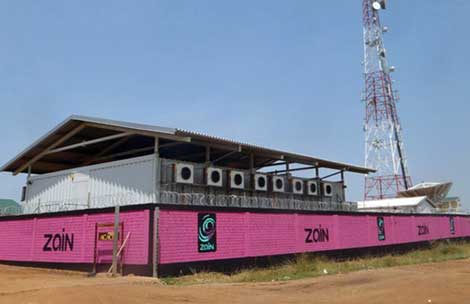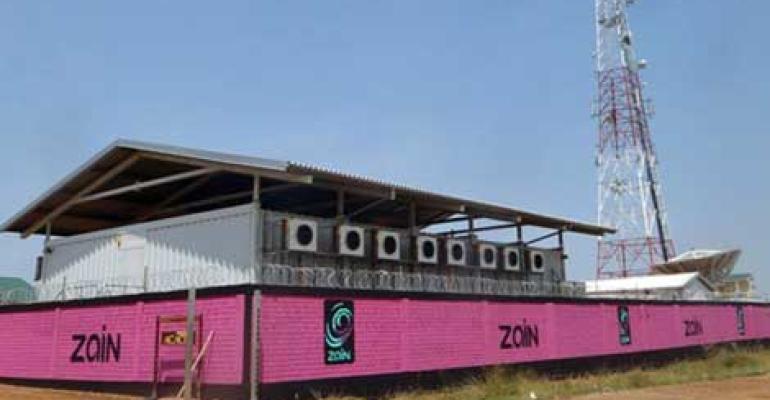
An example of a Flexenclosure eCentre modular data center that was recently deployed in Sudan. The private equity arm of The World Bank has invested in Flexenclosure in hopes of accelerating wireless communications access in emerging markets. (Photo: Flexenclosure)
Factory-built data centers are gaining traction as a tool for bringing IT operations to emerging markets. A unit of the World Bank said today that it will invest in provider of modular data centers in hopes of accelerating wireless phone access in parts of Asia and Africa.
International Finance Corporation (IFC), the private equity arm of the World Bank, is leading a consortium that it investing $24 million (U.S. dollars) in Flexenclosure, a Swedish company that has developed pre-fabricated data centers ahnd power infrastructure, primarily for the telecom industry. The round also includes Flexenclosures existing investors, the Swedish investment funds Industrifonden and Andra AP-fonden.
The investment will support the deployment of Flexenclosure's modular data centers, as well as the on-site power systems that can support wireless towers using a combination of solar and wind power and batteries. eSite can provide backup power in areas where the grid is unreliable, and stand-alone power in areas where grid power is unavailable and diesel generators are impractical.
Boosting Emerging Economies
IFC, which focuses its investment in boosting emerging economies and reducing poverty, sees the potential for Flexenclosure's technology to extend the reach and reliability of communications in rural areas.
"An estimated 800,000 cellular base stations in emerging markets rely on diesel generators for their power supply," said Andrew Bartley, IFC’s Chief Investment Officer for Telecoms, Media, and Technology. "This is a great potential market for Flexenclosure’s innovative product offering. Its growth strategy is directly aligned with IFC’s goal to improve access to mobile-phone systems for people in rural areas in emerging markets while also reducing global greenhouse-gas emissions."
Flexenclosure, which was founded in 2001, has helped clients like Ericsson and Airtel expand networks into remote areas of Africa and Asia.
Expanding in Asia, Africa
"During the last year we have opened offices in Nigeria, Kenya, Pakistan, India, Malaysia and Dubai," said Flexenclosure CEO David King. "Having IFC as a strategic investor will give us access to their global expertise and network, further enhancing our expansion strategy. We have an aggressive research and development program and are growing our sales operations in emerging markets."
The new capital will be used to further develop Flexenclosure’s eSite and eCentre technologies. Here's an overview:
- eSite is a family of energy-efficient hybrid power systems for base station sites in areas where grid power is unreliable or unavailable. The product can be configured to use solar panels and wind turbines, and can be used to reduce the use of diesel generators, or as a "community power" system to support not only a wireless station, but also provide power for mobile phones, water pumps and schools. eSite includes software that can manage multiple power sources to achieve the most economic approach.
- eCentre is a prefabricated modular data centre solution to house and power data and telecom equipment. Optimized for energy efficiency and low total cost of ownership, eCentre includes power, cooling and security.
Flexenclosure customers say the system can accelerate infrastructure deployment in areas where construction is difficult. One example is provided by MTN Ghana, a mobile network with 8 million sibscribers.
"We have found that building a brick and mortar data centre in this and the adjacent countries is problematic because of faltering building standards, and a containerized solution is a lot quicker," said MTN operations manager Max Maxted. "The situation is similar with for example MTN Nigeria and we see this solution as a very positive one."





